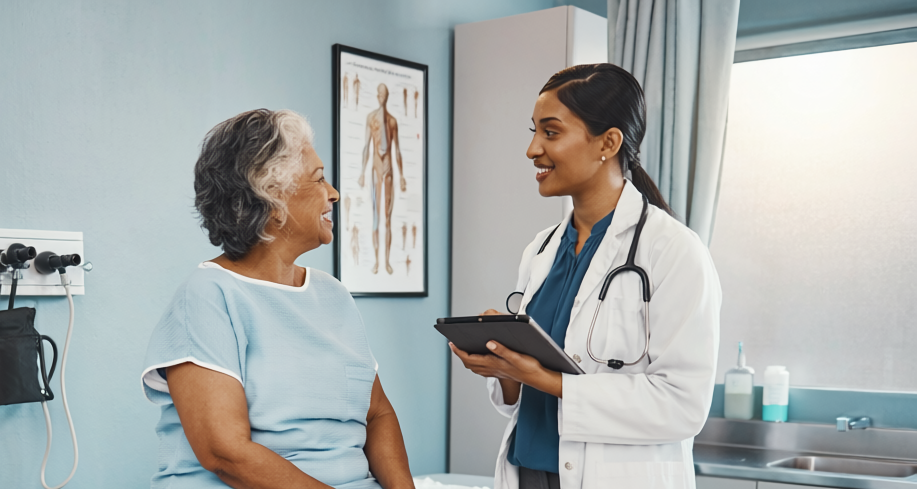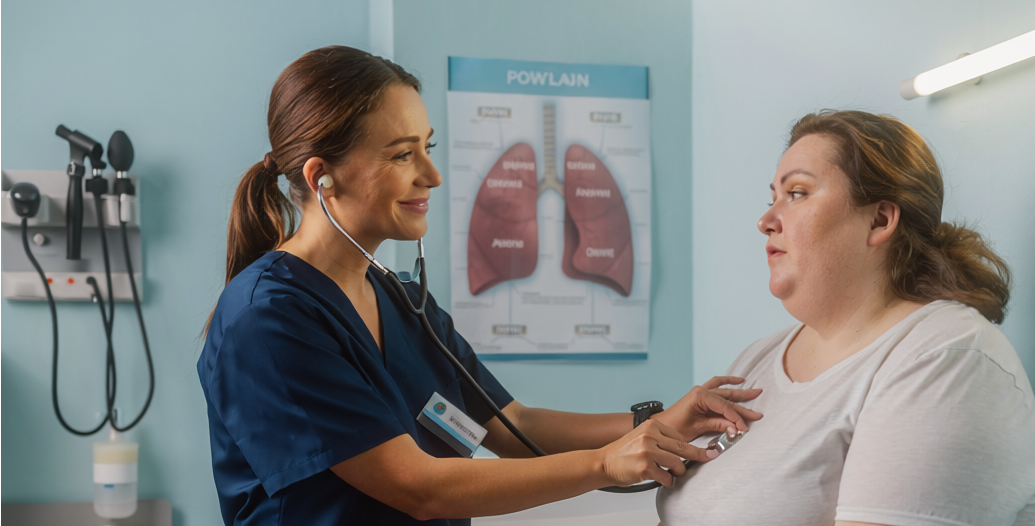
Are Urgent Care Centers Open on Holidays & Weekends?
Urgent care locations are becoming increasingly popular throughout the United States. For many, they are filling the gap in medical care between traditional primary care physician’s offices and emergency departments. To receive quality healthcare in certain situations, access to a traditional doctor’s office isn’t always available. At the same time, not all medical issues are emergencies and warrant a trip to a hospital — this is where urgent care clinics come in.
You may be familiar with the concept of urgent care facilities or have even been to one yourself, but have you wondered if they are open on the weekends and holidays? Here, we are answering the most common questions concerning urgent care center access — including their hours of operation and the days they are open to help you and your family get emergency care.
We will also break down when it’s appropriate to visit a walk-in clinic or when you may want to consider another option.
What Are the Disadvantages of Standard Practice Offices?
Building and maintaining a relationship with a primary care provider is a good thing to do. However, there are some problems you can run into when it comes to traditional physician’s offices:
Limited Hours
If an unexpected health issue arises and you need care, the window of free time you have to take care of it may be limited. For people who don’t have the privilege of being able to take significant time off from work, or for people who, for any other reason, can’t block off time during normal work hours, getting in to see a doctor can be very difficult.
For people who live in more geographically remote areas, those who don’t have easy access to transportation, or are experiencing any other limitations in accessing adequate healthcare, limited hours can only make it more difficult to see a doctor.
Scheduling Appointments
Even if you manage to find adequate time to see a medical professional, there’s a good chance that time won’t line up with what a doctor’s office has available. They don’t typically allow walk-in visits, so there’s no getting around having to schedule your appointment. Additionally, many doctors only offer very limited weekend hours, if any.
Making appointments at doctor’s offices can be difficult and frustrating. Time blocks are usually limited, and you often have to make commitments far in advance. This situation can be especially annoying, as you don’t even know if you’ll still be available when the time for the appointment finally comes — something may come up, and you’re back to square one, even if all you needed were some basic lab tests.
Wait Times
If you have a tight schedule, going to a traditional doctor’s office can cause stress. The truth is, depending on the day and time your appointment is scheduled for, you could be waiting for 15 minutes — or you could be waiting for an hour and a half.
Weekend and Holiday Closures
On top of all of this, the office may be closed on the only days that you do have availability. This includes weekends, although some offices remain open on the weekends and holidays. To make matters even worse, the days that you are available are likely the same days that other patients are available, making it harder to see someone.
Do You Need To Make an Appointment for an Urgent Care Visit?
You do not need to make an appointment at urgent care centers, however, at many of them, you can.
If you go for just a walk-in appointment, it’s treated like a normal queue — you will be seen based on who came in before you. If the center does allow appointments, you can call ahead to ensure that your wait time is minimal.
Another option that many urgent care centers provide is a “check-in” system. You can check in ahead of your arrival and give them all your personal information. Some clinics may even offer online check-in systems.
This won’t give you a specific time slot, but it will hold your spot in line and speed up the paperwork process when you get there.
How Does Urgent Care Compare to the Emergency Room?
So you’ve decided against visiting a normal medical office, but now you have a choice between an urgent care center and an emergency department at a hospital.
Generally, if you are dealing with something common like pink eye, sinus or strep throat infections, urinary tract infections, or colds, urgent care is perfectly suitable.
That said, there are a few key differences between urgent cares and emergency rooms, and you can determine what is the right choice based on these factors:
Are You Experiencing a Medical Emergency?
One thing that should be factored into your decision is whether or not it is appropriate to visit an emergency room based on the situation.
Conditions that require immediate medical attention, and which may be best attended to in the emergency room, include:
- Seizures or any loss of consciousness
- Gunshot and significant knife wounds
- Any type of uncontrollable bleeding
- Severe burns
- Pregnancy issues, like bleeding
- Severe chest or abdominal pain
- Heart attack symptoms
- Stroke symptoms
- Difficulty breathing
If you are not experiencing an emergency, there are still non-life-threatening conditions that should receive care within 24 hours. These are considered urgent medical conditions and include:
- Wounds with controllable bleeding but may require stitches
- Fever or flu
- Fractures or broken bones in hands or feet
- Sore throat accompanied by cough
- Sprains
- Infections or rashes
- Vomiting or diarrhea
If your symptoms fall into the latter list, urgent care services may be suitable.
Accessibility
Another thing to consider is the accessibility advantage of urgent care over emergency rooms.
If you have an urgent medical condition that’s not a life-threatening emergency, you can still go to an emergency room to receive care. But going to an urgent care center may be a better option for a few reasons:
Cost
Urgent care centers are a more cost-effective choice and can save you hundreds of dollars — hospital emergency rooms often have much higher co-pays than most urgent care centers.
Insurance
There’s a good chance that your health insurance will be accepted at an urgent care facility, although you should call ahead to ensure the location you plan on visiting is in your network.
Are Urgent Care Centers Open on Weekends?
Although operating hours may vary slightly among different locations, urgent care centers are generally open on weekends — expect normal business hours with a window from the morning to the late afternoon/early evening.
Hours may be slightly more limited on Sundays, but not necessarily. If you can’t receive care on a weekday, you can count on urgent care centers to be open on Saturdays and Sundays.
Are Urgent Care Centers Open on Holidays?
Many urgent care facilities are put in place to be a reliable source of care for the communities they serve and are therefore open 365 days a year, including holidays.
That being said, facilities may only be designated to remain open on holidays based on population densities, so it’s a good idea to call ahead to ensure that the location you visit will be open.
Fast Pace Health
Our urgent care centers are not only open on weekends and most holidays, but we offer evening (after 5 p.m.) hours for those who can’t see someone during normal work hours.
You can check that a location will be open by visiting our site or call ahead to confirm. We’re here to answer any other questions you may have regarding our operating hours and accessibility.
If you are not experiencing a medical emergency but have a condition that requires urgent medical attention, you can reserve your spot in line at, or walk in to, any of our 183 clinics across Louisiana, Tennessee, Kentucky, Mississippi, and Indiana.
At Fast Pace Health, our dedicated healthcare providers are committed to putting you at the center of your care. We are here to help you and your family with any health issues you may be experiencing or any health goals you may be striving for.
Sources:
Recognizing medical emergencies: MedlinePlus Medical Encyclopedia | MedlinePlus
What’s a Primary Care Physician (PCP)? (for Parents) | Nemours KidsHealth
Related Resources


